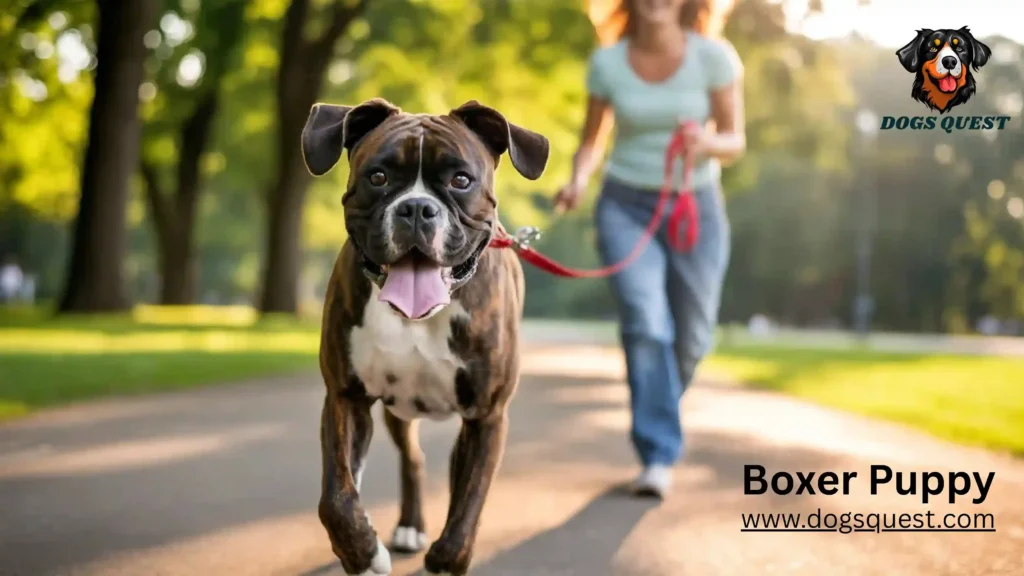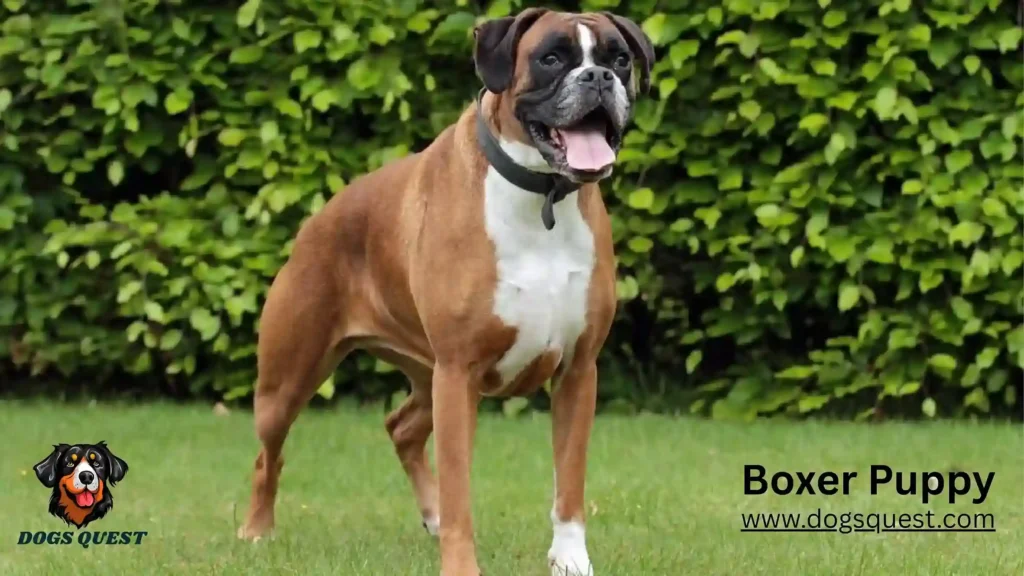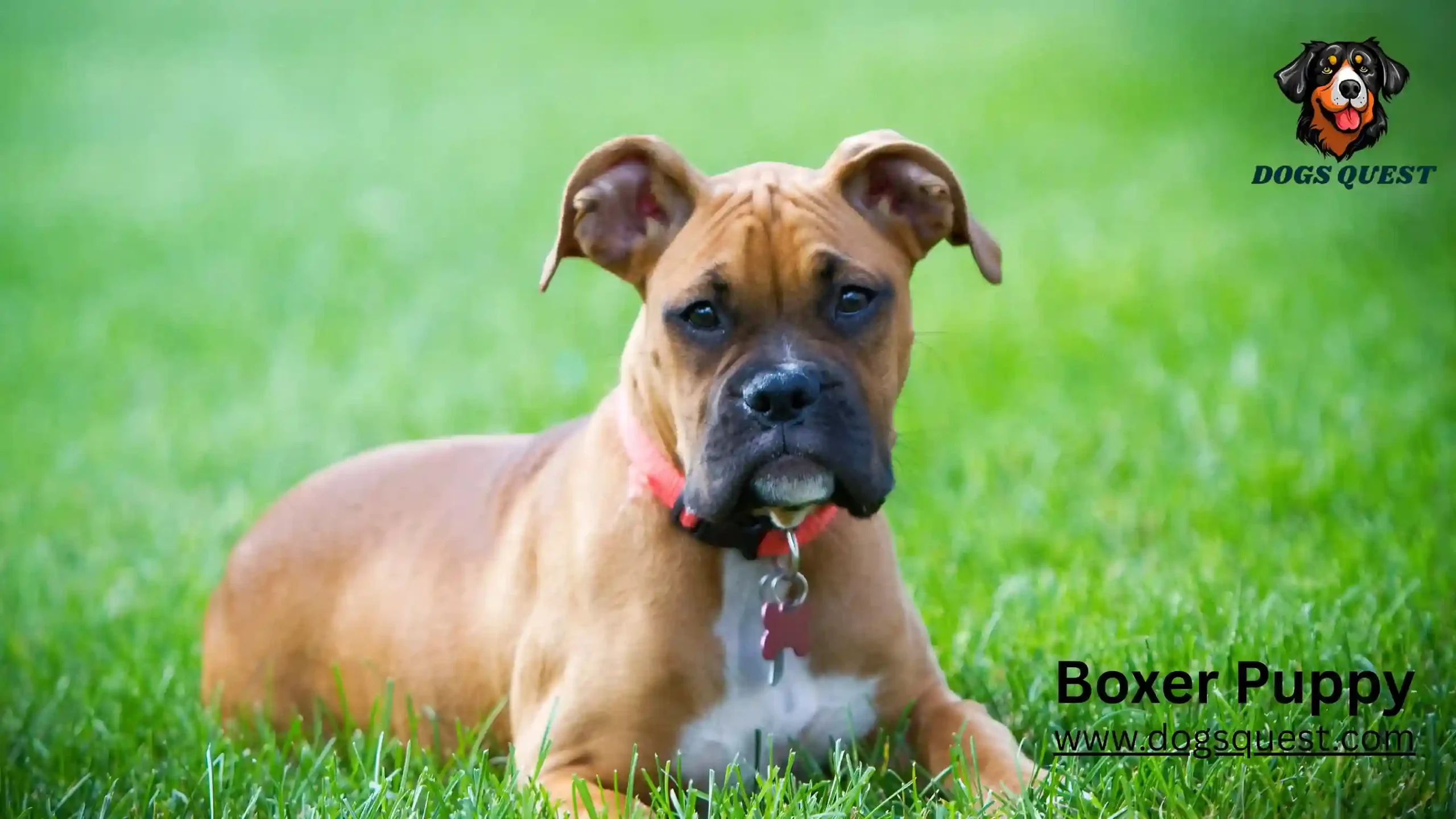Discover why the boxer puppy is one of the most loyal, playful, and protective dogs you can welcome into your home. Learn care tips, training hacks, and fun facts in this ultimate guide.
Introduction:
If you’re looking for a dog that’s equal parts playful, protective, and affectionate, a boxer might just steal your heart. These energetic dogs are known for their silly personalities, muscular builds, and deep loyalty to their families. Whether you’re a first-time pet parent or a seasoned dog lover, welcoming a boxer into your home is a decision that will bring joy, laughter, and plenty of tail wags.
In this guide, we’ll explore everything you need to know about the boxer P —from temperament and training to grooming, diet, and health. By the end, you’ll know exactly why this breed is adored by families worldwide.
History of the Boxer Breed
The boxer puppy comes from a long and fascinating lineage.
German Origins
Boxers were first bred in Germany during the 19th century. They descend from the Bullenbeisser, a now-extinct hunting dog, and the English Bulldog. These dogs were originally bred for guarding, hunting large game, and even working alongside soldiers.
From Workers to Companions
While boxers once had serious jobs, today’s boxer is bred for companionship. Their working heritage gives them intelligence and athleticism, while their family-friendly temperament makes them one of the most popular breeds in the world.
Personality Traits of a Boxer Puppy

One of the main reasons people fall in love with a boxer is their personality.
Loyal Protectors
Boxers are incredibly loyal to their families. They form deep bonds and often act as protectors, making them natural watchdogs.
Playful and Energetic
A boxer puppy is basically a ball of energy. They love to play fetch, run around the yard, or wrestle with their favorite toy. This makes them perfect for active families.
Affectionate Companions
Despite their tough appearance, boxers are gentle and affectionate. A boxer puppy will happily cuddle with you after playtime, proving they have a soft side.
Training Your Boxer Puppy
Training is an essential part of raising a boxer puppy.
Start Early
The best time to start training is when your boxer puppy is young. They’re quick learners but can be a little stubborn, so consistency is key.
Positive Reinforcement Works Best
Boxers respond well to praise, treats, and play. Harsh training methods won’t work with this sensitive breed.
Socialization is Critical
Expose your boxer puppy to different people, places, and animals early on. This prevents fear-based behaviors and helps them grow into confident adults.
Exercise Needs of a Boxer Puppy

A boxer puppy is not the type of dog that will lounge all day.
Daily Walks and Runs
Boxers need at least 60–90 minutes of exercise per day. A walk, a run, or a trip to the dog park will keep your pup healthy and happy.
Mental Stimulation
Don’t forget mental exercise! Puzzle toys, obedience training, and interactive play keep your boxer P sharp and engaged.
Diet and Nutrition for Boxer Puppies
Feeding your boxer puppy the right diet ensures proper growth and long-term health.
High-Quality Puppy Food
Choose a premium puppy food with high protein content to support muscle development.
Avoid Overfeeding
Boxers are prone to weight gain if overfed. Measure meals carefully and limit treats.
Fresh Water Always
Like all dogs, a boxer P needs access to clean, fresh water at all times.
Grooming a Boxer Puppy

Good news—grooming a boxer P is pretty simple!
Coat Care
Their short coat only needs weekly brushing to reduce shedding and keep it shiny.
Bathing
Bath your boxer puppy once every 4–6 weeks or as needed. Use a gentle dog shampoo to avoid skin irritation.
Nails, Ears, and Teeth
- Trim nails monthly
- Clean ears weekly
- Brush teeth several times a week
Health Concerns in Boxer Puppies
Like all breeds, the boxer can be prone to certain health issues.
Common Boxer Health Issues
- Hip dysplasia
- Heart conditions
- Allergies
- Certain cancers
Preventive Care
Regular vet checkups, vaccinations, and a healthy lifestyle are key to keeping your boxer puppy thriving.
Living with a Boxer Puppy

So, what’s it really like to live with a boxer puppy?
Perfect for Families
Boxers are famously good with children. Their playful nature makes them wonderful companions for kids.
Good with Other Pets
With proper socialization, a boxer puppy usually gets along well with other dogs and even cats.
Apartment vs. House Living
While boxers adapt well to apartments, they thrive best in homes with yards where they can run freely.
Fun Facts About Boxer Puppies
- A boxer often “boxes” with its front paws when playing—hence the name.
- Boxers are known for their expressive faces and goofy grins.
- They’re considered a “Peter Pan” breed because they stay puppy-like well into adulthood.
- A boxer can jump surprisingly high, so secure fencing is important.
- Boxers are one of the top 10 most popular dog breeds in the U.S.
Pros and Cons of Owning a Boxer Puppy
Pros
- Loyal and protective
- Great with kids
- Easy grooming needs
- Playful and entertaining
Cons
- High energy (requires lots of exercise)
- Can be stubborn during training
- May develop health issues
- Not ideal for people with very sedentary lifestyles
Final Thoughts: Is a Boxer Puppy Right for You?
If you’re searching for a loyal, fun-loving, and protective companion, a boxer could be the perfect choice. They thrive in active households and reward their families with endless affection and laughter. While they require training, exercise, and some patience, the love they give in return is unmatched.
Welcoming a boxer into your home means gaining a best friend for life.
FAQs About Boxer Puppies
Q1. Are boxer puppies good family dogs?
Yes, a boxer is one of the best family companions. They are affectionate, playful, and protective, making them ideal for households with children. With the right training, they grow into loyal guardians and fun playmates.
Q2. How much exercise does a boxer puppy need?
A boxer needs 60–90 minutes of daily activity. Long walks, play sessions, and puzzle games are excellent ways to meet their exercise and mental stimulation needs.
Q3. Do boxer puppies shed a lot?
No, boxers are considered low-maintenance when it comes to shedding. A boxer has a short coat that only requires weekly brushing to stay clean and shiny.
Q4. How big will a boxer puppy get?
An adult male boxer usually weighs 65–80 pounds, while females reach 50–65 pounds. A boxer grows quickly in the first year and typically reaches full adult size by 18–24 months.
Q5. Are boxer puppies easy to train?
Yes, but they can be a bit stubborn. A boxer responds best to positive reinforcement, consistency, and early socialization.

